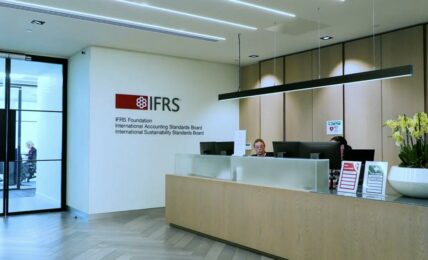Nearly 9 out of 10 CEOs believe that progress on global sustainable development goals is at risk due to emerging geopolitical and economic challenges, even as business leaders increasingly see sustainability as a top priority, according to a new report released today by global professional services firm Accenture and the UN Global Compact (UNGC).
For the report, Accenture and the UNGC surveyed more than 2,600 CEOs across 128 countries and 18 industries, and conducted over 130 interviews with CEOs, chairpersons and presidents of UN Global Compact member companies.
The CEOs engaged for the study highlighted an increasingly uncertain environment, with multiple disruptive forces challenging their businesses. The most impactful challenges cited by the CEOs included inflation, talent scarcity, public health threats, climate change and trade regulation.
In the face of these disruptive forces, 87% of the CEOs said that the world’s ability to achieve the UN Sustainability Development Goals (SGDs) would be limited by current geopolitical risks. The UN SDGs refer to the 17 categories of goals adopted as part of the 2030 Agenda for Sustainable Development, with the aim to protect the planet and improve the quality of life globally. SDG targets include ending poverty and hunger, improving education, and protecting the environment.
For many of the business leaders, the challenges are impacting their own sustainability initiatives, particularly among smaller businesses. 43% of CEOs reported that geopolitical instability has set back their businesses’ sustainability efforts, including 49% of SME CEOs.
Sanda Ojiambo, Assistant Secretary General, CEO and Executive Director UN Global Compact, said:
“Businesses continue to be impacted by multiple shocks. As a result, on a broad range of issues, from runaway climate change to widening social and economic inequalities, business action right now does not match the ambition and pace needed to achieve the Sustainable Development Goals by 2030.”
The setbacks to SDG progress, however, come even as the business leaders increasingly report focusing on sustainability. 72% of CEOs surveyed agreed that they were responsible for their firms’ sustainability performance, compared to only 19% in a 2013 survey. Similarly 98% of survey respondents agreed that the role of a CEO is to make their business more sustainable, an increase of 15 percentage points from 2013.
While several CEOs report being off track on their sustainability goals, many continue to invest in sustainability-related initiatives in an effort to build resilience in the face of these challenges. 63% of CEOs reported that they are launching new product or service offerings for sustainability, and nearly half said that they are investing in renewable energy to reduce dependency on fossil fuel use (49%), and that they are transitioning to circular business models (49%).
Many of the CEO’s sustainability efforts are targeting value and supply chains. 54% reported that they are strengthening visibility into the social impacts of their company’s value chain, with 55% enhancing value chain sustainability data collection capabilities, 34% reducing Scope 3 emissions, and 33% incentivizing ESG outcomes in the value chain.
The report also examined the evolving role of various stakeholder groups as drivers of sustainability action. While consumers remain the stakeholder group most often cited as having a significant impact on their businesses’ sustainability management, reported by 68% of CEOs, governments appear to be taking a more significant role, reaching 52%, compared with only around 30% in last year’s survey, and the investor community increasing slightly to 34%.
As government and regulatory policy increase in importance, the CEOs are calling for more government engagement on policy changes, according to Accenture, such as standardized ESG reporting frameworks, a global carbon market, and incentives for sustainable business models.
Peter Lacy, Global Sustainability Services lead and Chief Responsibility Officer at Accenture, said:
“CEOs are clearly concerned about resilience, but one leader’s resilience is another leader’s growth opportunity. New waves of technology investments and breakthrough innovation can put the SDGs back within reach – but only if leaders turn to sustainability for resilience to help create new markets, products and services that can correct the current trajectory and drive growth amid times of disruption.”
Click here to access the report.
The post 87% of CEOs Warn Sustainable Development Goals at Risk: Accenture, UNGC Report appeared first on ESG Today.


